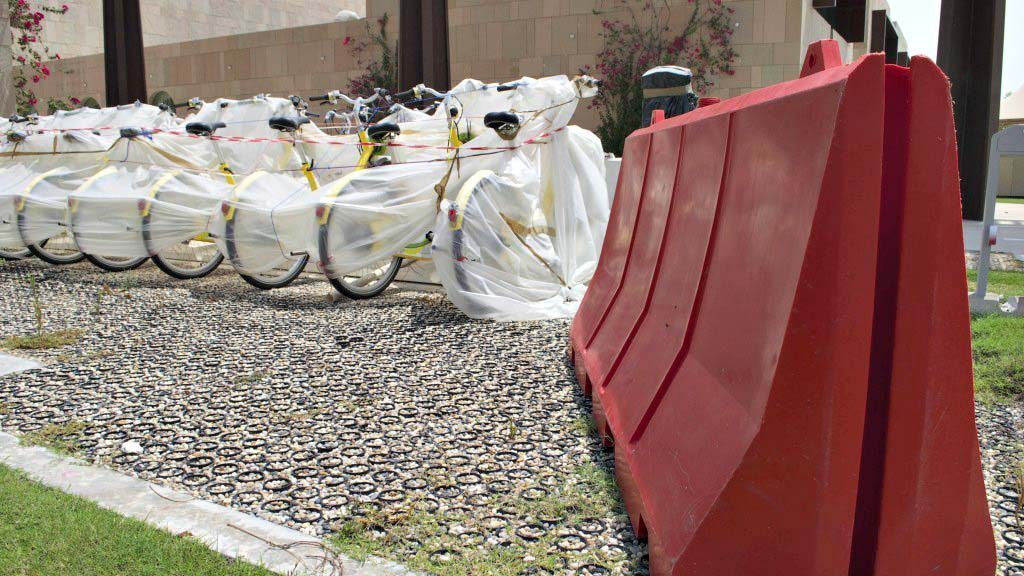
University students inside Education City have expressed dismay and frustration over new delays with the campus biking system.
Some 200 electric bicycles that were installed on campus last March have remained unused because the company that supplied the bikes went out of business before it delivered the requisite batteries, the Daily Q reports.
Citing Jassim Telefat, technical affairs director at Qatar Foundation’s Capital Projects directorate, the student-run publication continues:
The current bike system was supposed to be charged and function electronically at the press of a button so that riders do not need to pedal, Telefat said. But that system will now be delayed because Capital Projects are currently trying to find a new company that can supply a similar electronic bike system, according to Telefat.
“We will still utilize the infrastructure that we have already…What will change are the bikes and the systems that go with them,” he said.
It is not clear how much QF spent on the bikes, which were supplied by Swiss startup Electric Feel. The Zurich-based business was not immediately available for comment.
But it appears that Electric Feel was solvent at least until a few months ago, as its CEO posted in October that the company was seeking to hire new employees.
Navigating the sprawling EC campus has gotten increasingly difficult for students, who are generally no longer allowed to park at school due to ongoing construction.
Many students must thus rely on shuttle buses to ferry them from a parking lot at the Qatar National Convention Center to school, but there have been complaints about the buses being unreliable.
Speaking to the Daily Q, Carnegie Mellon University in Qatar student Zuhair Syed said:
“They’ve been talking about having some kind of bicycle system since my freshman year, and it’s my senior year now and they still haven’t started. I’m actually surprised that they chose to have such high-tech bikes. Why can’t they just have normal bikes that you peddle?”
While the idea of a bike system is popular with many students, some have called it unrealistic due to the searing summer heat and cultural concerns.
Tram delays
Meanwhile, the rollout of a “Doha Tram” that would provide transportation to the campus community has been pushed back by a year.

This week, the president of QF announced that the system would be operational by the fall of 2016, after a testing phase at the beginning of that year.
Previously, the energy-efficient system, operated by Germany-based Siemens, was to be introduced by the fall of 2015. The $123 million deal will provide QF with 19 trams to serve 25 stations, covering some 11.5 km of track.
According to the Qatar Tribune, a life-size model of the Avenio tram will soon be displayed at several locations throughout Doha.
Thoughts?







